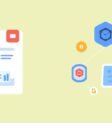
In today’s competitive business environment, the ability to swiftly and accurately qualify leads can make or break your sales pipeline. As digital interactions multiply and buyer behaviors shift, businesses are increasingly turning to AI lead qualification to supercharge their sales efforts. This article explores why AI is transforming lead qualification processes, how it works, and best practices for implementing high-impact AI solutions in your sales funnel.
The Need for AI in Modern Lead Qualification
The 2024 sales landscape is defined by rapid change, digital prospects, and high stakes for conversion. Manual lead qualification simply can’t keep pace: it’s slow, error-prone, and expensive. Traditional methods often miss nuanced opportunities for personalization, resulting in wasted resources and missed revenue. Today’s buyers expect immediate, tailored responses—and that’s where AI lead qualification shines. Leveraging AI allows businesses to automate lead assessment using data-driven indicators such as behaviors, engagement patterns, and demographics, streamlining both identification and prioritization. As a result, teams spend more time closing deals and less on low-value administrative tasks. Companies integrating AI are now better prepared to adapt to shifting market dynamics, extract greater value from each lead, and nurture stronger customer relationships from the first touchpoint.
Understanding the AI Lead Qualification Landscape
AI lead qualification refers to the integration of artificial intelligence into the customer identification, prioritization, and nurturing process. Historically, lead qualification was manual and subjective, relying on slow scoring and uncertain follow-up. Sales and marketing teams grappled with overwhelming volumes of leads and static qualification criteria, such as job title or company size, which often led to inefficiencies and misaligned targeting.
AI changes the game by applying machine learning, natural language processing, and predictive analytics across vast digital datasets. It rapidly analyzes engagement, demographics, behavioral signals, and even conversational content—accurately scoring and segmenting leads in real-time. This approach is vastly superior to traditional methods and quickly uncovers actionable insights that would otherwise go unnoticed. Leading analysts at Gartner and Forrester have reported that organizations leveraging AI lead qualification see measurable gains in both productivity and forecasting accuracy.
Among the notable industry trends is the adoption of tools such as AI-based chatbots, automated scoring modules, and intent prediction models, which streamline workflows within CRM platforms. Key advantages include faster response times, personalized engagement, and models that continually improve with new data, all of which drive efficiency and revenue in a hyper-competitive market. For a detailed discussion on features to look for, see Top 10 Features of TheAgentBot You Shouldn’t Miss.
How to Build an AI Agent for Lead Qualification: Step-by-Step
Developing an effective AI agent for lead qualification is a structured process that combines strategic vision with technical know-how. Here’s how to embark on that journey:
- Define Clear Objectives and Criteria: Clarify your qualification goals and criteria—such as demographic and behavioral indicators—and map out essential questions for your AI to capture, like budget, decision-making authority, and purchase timeline.
- Select the Right AI Solution: Choose a platform specializing in AI-driven lead qualification. Decide between a pre-built chatbot or a custom solution through providers like GPT or Dialogflow. Platform fit, CRM integration, and privacy compliance are key considerations.
- Curate and Prepare Training Data: Use historical interaction data—including chat, email, and calls—and annotate qualified/unqualified leads. Carefully clean and structure your data for optimal learning, supplementing with public datasets as needed.
- Design Conversation Flows and Scoring Logic: Map out all possible conversational scenarios, design real-time lead scoring mechanisms, and build escalation protocols for complex cases. Dynamic routing and fallback options enhance performance.
- Train, Test, and Iterate: Use simulated scenarios to train intent recognition and data extraction. Regularly collect user feedback and refine both the flow and accuracy continuously.
- Seamless Integration: Deploy your AI across multiple lead channels and connect it with your CRM for automatic handoff, notifications, and next steps, minimizing manual intervention.
- Monitor, Optimize, and Maintain: Continuously track performance metrics—like qualification rate and conversion—and use insights to retrain your agent and update conversational content. By establishing a feedback loop with sales, the system keeps pace with changing business requirements.
For more in-depth steps and practical tips on setting up, read Setting Up Custom AI Agents with TheAgentBot.
Key Data Sources and Integrations for AI-Powered Lead Qualification
A successful AI lead qualification strategy hinges on seamless data flow. The backbone is a robust CRM platform—such as Salesforce, HubSpot, or Zoho—that captures all essential lead information and touchpoints. These systems provide the historical and current data needed for AI-driven insights.
Beyond CRMs, top marketing automation platforms (like Marketo and Pardot) capture behavioral data from campaigns, web activity, and content interactions, enriching the lead profiles for AI systems. Integration with external data providers, such as Clearbit or LinkedIn, supplies firmographic updates—like company size, industry, and decision-maker status—boosting overall data quality.
Integrating these sources often requires middleware or APIs (such as Zapier or MuleSoft) to synchronize information across systems in real-time, allowing AI to score leads with up-to-the-minute data. This robust data and integration approach underpin a scalable, accurate, and efficient qualification workflow. Platforms that simplify integration, such as those highlighted in TheAgentBot Integrations: Tools You Can Connect Today, can significantly streamline operations and data flow.
Best Practices for AI-Driven Lead Scoring
Lead scoring is central to effective qualification systems. The process begins with defining clear, data-backed attributes—company size, industry, purchase intent, and stakeholder involvement—that characterize your ideal buyer. Each data point is then weighted and scored according to its influence on successful conversions.
AI-driven platforms amplify this process by analyzing thousands of signals, both behavioral (like email engagement, demo signups, event attendance) and demographic. Machine learning algorithms—such as logistic regression or gradient boosting—spot patterns that manual processes might overlook, resulting in dynamic, real-time scoring models.
Integration with modern CRMs enables automated prioritization. Regularly reviewing closed deal feedback, recalibrating the scoring model, and aligning with input from sales and marketing ensures ongoing optimization. By blending human intuition with advanced analytics, businesses can maximize focus on leads with the highest conversion likelihood and improve overall win rates. For foundational strategies, see Step-by-Step Guide to Building a Multi-Task AI Agent.
Overcoming the Challenges of AI Lead Qualification
As transformative as AI lead qualification is, several challenges must be managed proactively:
- Safeguarding Data Privacy: With personal data at the core, data privacy is paramount. Implement strong data governance, provide access controls, and anonymize where possible. Regularly update compliance practices to reflect changing laws like GDPR and CCPA, and commit to ongoing transparency.
- Monitoring and Mitigating Model Drift: AI models can become less accurate over time due to shifts in business or market data. Continuous monitoring, scheduled retraining, and the use of drift-detection algorithms are crucial. Adopt a proactive approach to adjustment and documentation.
- Ensuring AI Reliability: Reliable AI is built on thorough data validation, scenario testing, and robust pipelines. Reduce bias with varied training data, implement cross-validation, and ensure human oversight for ambiguous cases. Routine stress testing keeps performance trustworthy.
- Regulatory Compliance and Trust: Stay current with all relevant industry regulations and maintain clear documentation. Make audit trails available, and communicate AI’s role in lead qualification openly—with both internal and external stakeholders.
Following these practices can help organizations minimize risk, maintain compliance, and foster lasting trust in their AI-driven lead qualification initiatives. For further resources on no-code AI reliability, check out The Best No-Code Tools for Building AI Agents.
Conclusion
AI lead qualification is no longer just a technological advantage—it’s a sales imperative. By leveraging advanced analytics, predictive scoring, and real-time data integration, companies can optimize lead conversions, boost productivity, and future-proof their sales operations. Embracing best practices for setup, integration, and ongoing monitoring is crucial to harnessing the full potential of AI for lead qualification, ensuring both scalability and sustainable success in a fast-evolving digital marketplace.
For further reading on the practical impact of AI in sales and marketing, you might also be interested in Case Study: How One User Doubled Productivity Using TheAgentBot.






